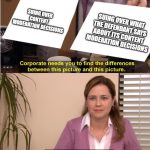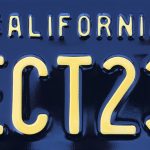
Last year, the Ninth Circuit said that plaintiffs could get around Section 230 in their lawsuit against the app maker YOLO because the app maker said it would ban users for inappropriate statements and would unmask harassers. This opinion raised…

Loomer brought RICO claims against Facebook, Twitter, and Procter & Gamble, claiming they were all part of a “wide-ranging conspiracy…to unlawfully censor conservative voices and interfere with American elections.” The panel says wearily that “This action is Loomer’s fourth lawsuit…

I’m continuing my coverage of my 20 year blogiversary. I asked readers how their information consumption practices had changed in the past 20 years. Some of their responses: __ “I’m definitely online more. I didn’t even have a cell phone…

I’m continuing my coverage of my 20 year blogiversary. When I started the blog, I didn’t contemplate having guest bloggers. At minimum, I never assumed I’d have enough traffic or exposure to make it an attractive publication venue for others….

I previously summarized this lawsuit: The plaintiff sells remanufactured printer ink cartridges. The plaintiff claims that Amazon listings falsely claim that other merchants’ cartridges are “remanufactured” or “recycled.” For reasons unclear to me, the plaintiff thought it would be a…

This case involves the Homeaglow/Dazzle Cleaning services. The plaintiffs claim that purchasing the defendant’s initial loss leader offering caused the plaintiffs to subscribe to a hidden monthly recurring charge. Invoking the arbitration clause in the TOS, the defendant sought to…

As you may recall, the Ninth Circuit substantially gutted California’s mandatory editorial transparency law (AB 587). In the aftermath of that ruling, the California AG abandoned its defense of key portions of the law. The settlement says: subdivisions (a)(3), (a)(4)(A),…

I don’t normally start my blog posts with a meme, but this one tells you everything you need to know: * * * This blog post concerns the California Age-Appropriate Design Code (AADC), passed by the California legislature in 2022….

[Continuing with the blog’s celebration of its 20 year blogiversary, I’m sharing this reflection from Ethan Ackerman.] In the early oughts (zeros?)–right around Y2K, the .com crash and 9/11–the ‘series of tubes’ that was the Internet was, while still a…
